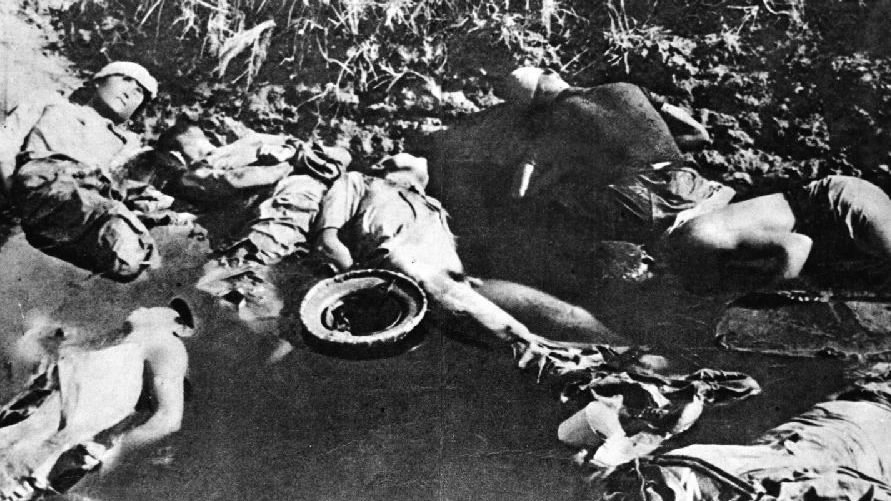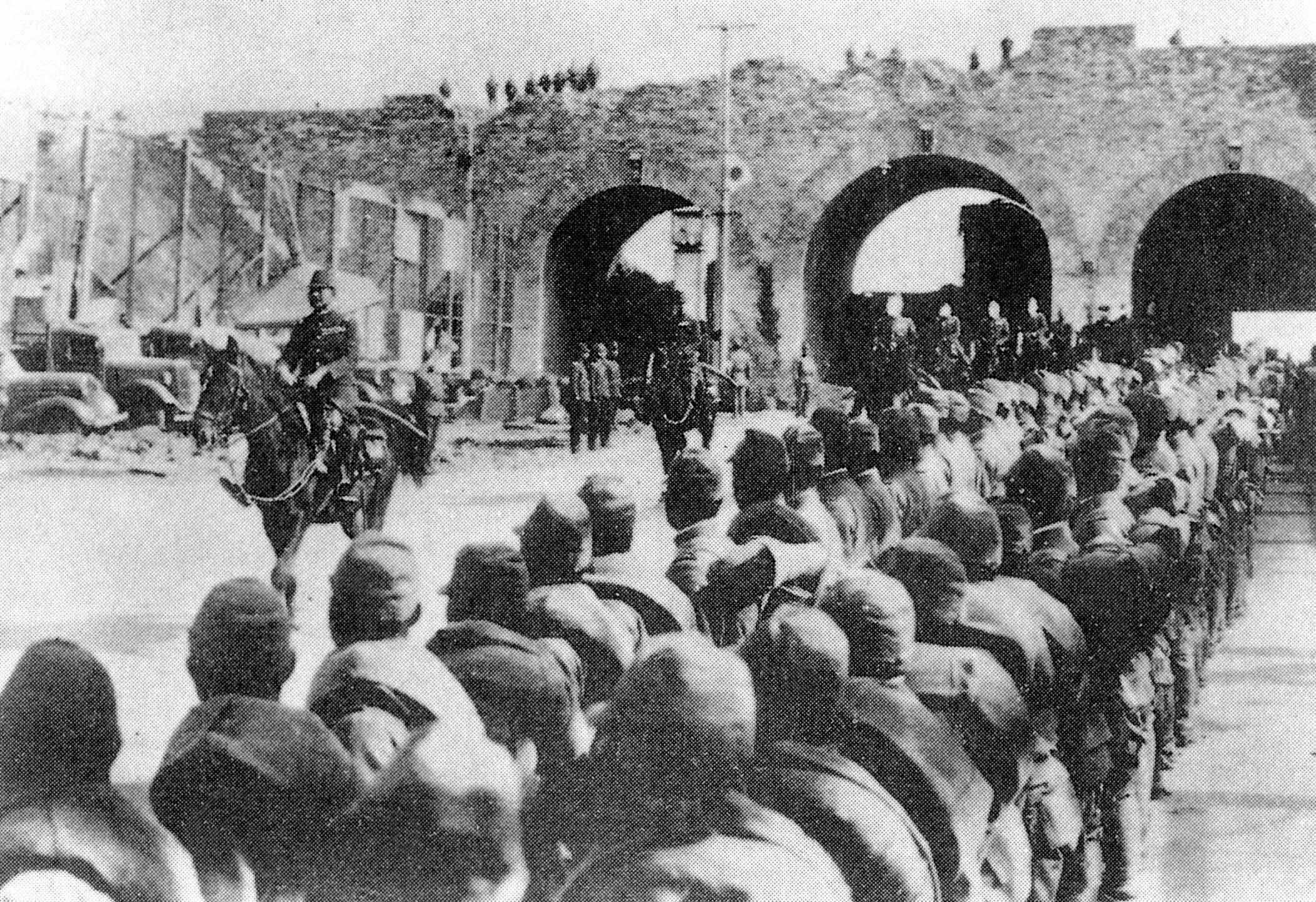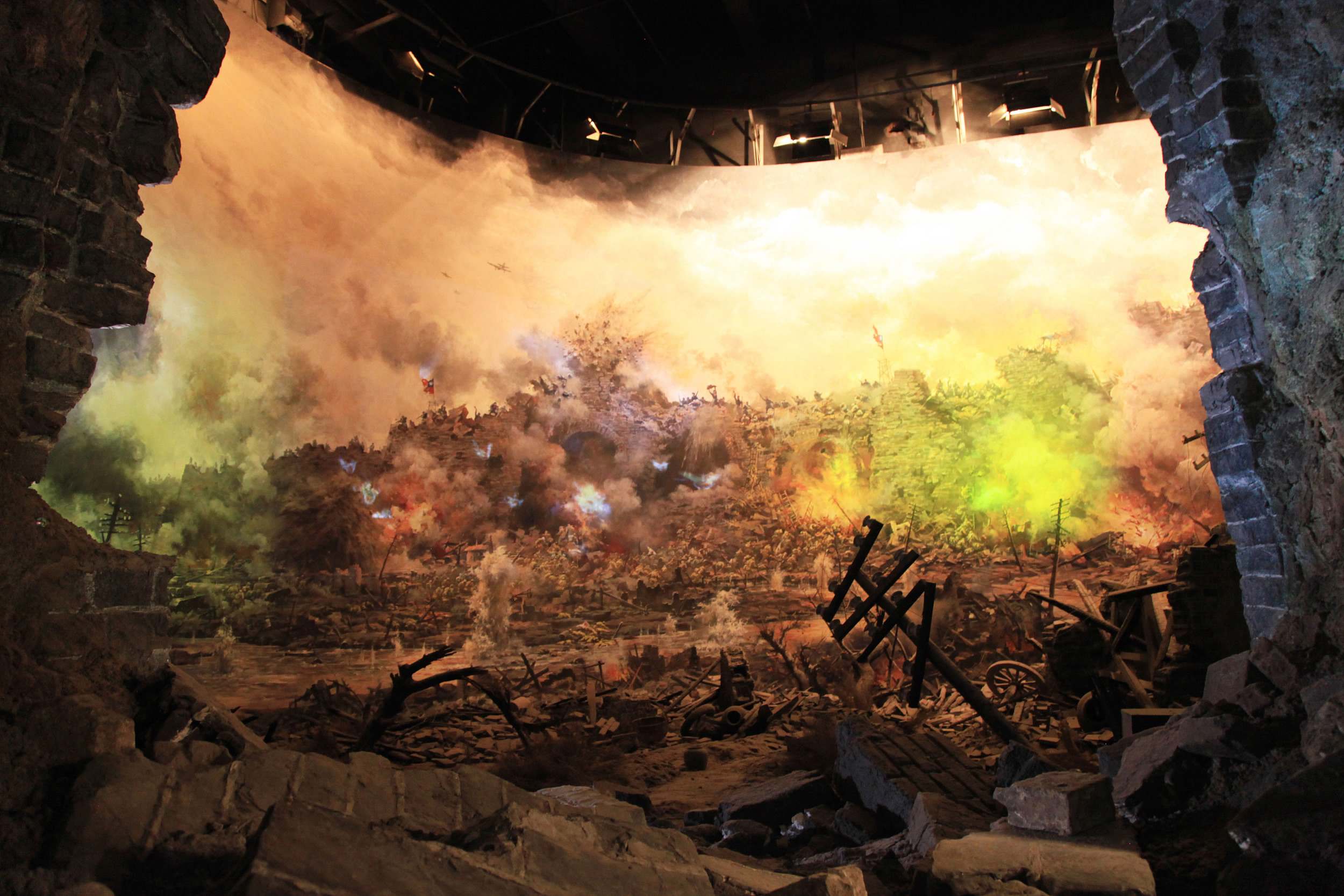
China
09:22, 13-Dec-2017
Nanjing Massacre: History keeps memories alive for future generations
CGTN

By CGTN's The Point
On December 12, 1937, Yang Dapeng and his comrade in arms fought to the bitter end as the Japanese Imperial Army destroyed the major city gate they were defending in Nanjing. Yang died that day at the age of 22.
The walls of the city were swiftly battered down and the Nanjing Massacre, an incomprehensively brutal atrocity, started the next day.
In 1975, Yang’s brother Yang Shu-Chin wrote a book called “Yang Dapeng: Memories of a Martyr in Nanjing” in an effort to find him after his family heard nothing after the battle.
“In my father’s heart, he always harbored a very slim hope that perhaps Yang Dapeng was still alive and maybe could one day walk back home safe and sound to the family,” Catherine Yang, a Washington-based writer and the daughter of Yang Shu-Chin, said on CGTN’s The Point.

/CFP Photo
/CFP Photo
“It took him that long to be able to face up to the pain that he had buried deep inside for all those years to finally master the emotional courage to make an official inquiry into what happened to Yang,” she went on.
The book starts with the question, “Where is my eighth brother?” a question that had haunted the author for nearly 40 years and was answered by eyewitnesses.
“It was really not just commemorating his brother, but he also wrote to commemorate Peng (a comrade in arms) and thousands of countrymen who died and suffered in the war of resistance against Japan,” said Catherine.
“The deep sentiment of writing the book is about the importance of remembering those who died and sacrificed their lives for us so that we can live and be strong.”
Her father passed away in 2001.
Translation: Complex and compelling
Yang recently helped her father translate the book into English, and as she read, she found the story more and more compelling. She also believed that by making the book available to English speakers, especially Chinese Americans like her son, a wider audience could understand the pain, suffering, and sacrifices that Chinese soldiers and civilians endured during the eight years of the war of resistance.

Among the parts in the book, she cherished the vivid images her father created.
Back in the 1920s and 1930s, the two brothers were teenage boys in separate high schools in Shenyang, a city in Northeast China’s Liaoning Province, an unstable region buffeted by warlords and invaded by both Russia and Japan.
On September 18, 1931, they heard the loud booms of the cannons in their dormitories that night. It was the sign that Japan had launched its invasion into Shenyang, known as the Mukden Incident.
The next morning, they had to creep out and find each other. They witnessed the Japanese soldiers riding horses down the street, telling everyone to stop and be still.

/CFP Photo
/CFP Photo
“Those kinds of experiences kindled Yang Dapeng’s patriotism and his commitment at a very young age to save the country,” said Catherine.
Beijing set the National Memorial Day for the Nanjing Massacre Victims in 2014, and 2017 marks the 80th anniversary.
“Western observers may view the history of the Nanjing Massacre through a more cynical lens of politics given that the history of the Nanjing Massacre is not settled between China and Japan,” noted Catherine.
“Despite all the politics surrounding the issue, we should recognize that human lives were lost in unspeakable ways,” she said. “We should keep their memories alive for future generations as a lesson.”
The Point with Liu Xin is a 30-minute current affairs program on CGTN. It airs weekdays at 9.30 p.m. BJT (1330GMT), with rebroadcasts at 5.30 a.m. (2130GMT) and 10.30 a.m. (0230GMT).
901km

SITEMAP
Copyright © 2018 CGTN. Beijing ICP prepared NO.16065310-3
Copyright © 2018 CGTN. Beijing ICP prepared NO.16065310-3